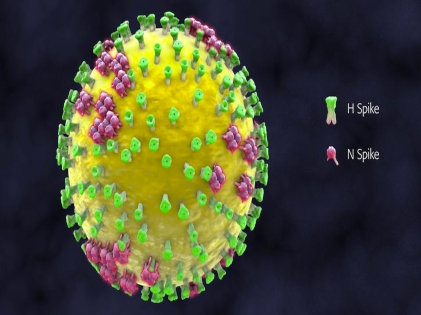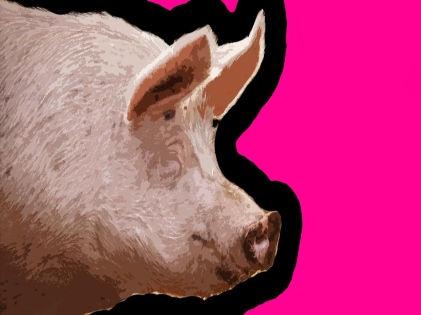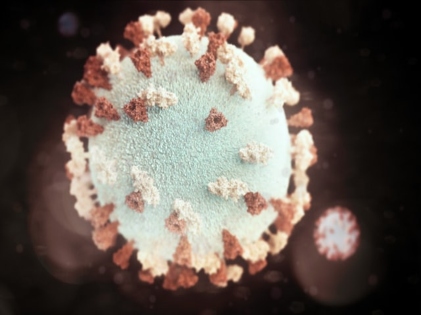 While the world continues to battle with the Covid-19 pandemic, a new healthcare threat seems to be making rounds. However, this is not a zoonotic virus-like coronavirus. A new form of the African Swine Flu is making rounds in Chinese pig farms, which scientists say could be resulting from illicit vaccines.
While the world continues to battle with the Covid-19 pandemic, a new healthcare threat seems to be making rounds. However, this is not a zoonotic virus-like coronavirus. A new form of the African Swine Flu is making rounds in Chinese pig farms, which scientists say could be resulting from illicit vaccines.
It has caused a significant blow to the world’s largest pork producer. The two new strains of African swine fever has now infected more than 1000 pigs owned by New Hope Liuhe, China’s fourth-largest producer.
The 2018 Swine Flu
 The rogue strains found this time is different from the wild African swine fever virus, baring a few similarities in their genetic makeup. However, it is not the same as the disease that ravaged China’s farms in 2018 and 2019. It caused a chronic condition that had an impact on the piglets born after that. Many large pork producers like New Hope, slaughtered their pigs to stop the infestation.
The rogue strains found this time is different from the wild African swine fever virus, baring a few similarities in their genetic makeup. However, it is not the same as the disease that ravaged China’s farms in 2018 and 2019. It caused a chronic condition that had an impact on the piglets born after that. Many large pork producers like New Hope, slaughtered their pigs to stop the infestation.
The Possible Impact
While the virus is spreading rapidly, there is not much information available in the public domain. But we can say for sure that this virus could impact the livestock industry. With the pigs dying in huge numbers, pork production would come down drastically worldwide. Industry experts believe that these numbers could be alarming as the 2018 Swine flu claimed over 400 pig herds’ lives.
The Covid-19 pandemic has already impacted the global economy, with every industry’s production taking a hit. And with the livestock industry crashing, too, we could see a food scarcity arising soon. While there is no known cause yet for this virus, experts believe it could be a genetic infection spreading across the species.
The Type of Virus
 While the US is yet to find traces of the virus in the country, research is underway to track the origin and spread in China. Researchers are carrying out surveillance on pigs in China and found genotype 4 (G4) Eurasian in them.
While the US is yet to find traces of the virus in the country, research is underway to track the origin and spread in China. Researchers are carrying out surveillance on pigs in China and found genotype 4 (G4) Eurasian in them.
A report published in the Proceedings of the National Academy of Sciences suggests that this virus could be similar to the H1N1 from 2016. Fears are rife, and arguments are underway on this turning into a pandemic. However, the World Health Organization has made no mention of the diseases spreading to humans even in their recent report on the African Swine Fever.
The Mix-Strain of Genes
The strain is a mix of various viruses and genes, such as the 2009 H1N1 flu pandemic virus. Genetic material can blend in an animal host via a reassortment process, which created a new virus. The new strain can proliferate in the human airway epithelial cells and processes. The new strains can spread worldwide via contaminated meat, especially infecting pigs that feed on kitchen waste. The virus can survive for months in pork products.
China’s Ministry of Agriculture and Rural Affairs
In August, the ministry said it would test various pigs for varied strains of the virus. And this would be done as part of an extensive investigation to stop the use of illegal vaccines. However, there have been no major findings and publications available yet. And that forms for major concern for Beijing.
The Warnings
 The authorities in Beijing have issued at least three warnings against the use of unauthorized African swine fever vaccines. The warnings highlight the possible side effects on the pig’s health. Besides that, the producers and users of these illegal vaccines could also be slapped with a criminal offense. The ministry even said that it would go ahead and test the pigs for various virus strains as a major investigation into various illegal vaccine use.
The authorities in Beijing have issued at least three warnings against the use of unauthorized African swine fever vaccines. The warnings highlight the possible side effects on the pig’s health. Besides that, the producers and users of these illegal vaccines could also be slapped with a criminal offense. The ministry even said that it would go ahead and test the pigs for various virus strains as a major investigation into various illegal vaccine use.
Any strain complete with gene deletions may indicate the usage of the vaccine. However, there are not enough findings or publications, making it a challenging road for scientists.
There has been no approved vaccine for African swine fever. But that is not much of a concern for many at this point, as the virus does not affect humans. And farmers can avoid their livestock from getting infected, if they use products approved by the health authorities. We have to wait and see how the world handles this new virus. And until then, be cautious and follow the instructions from the World Health Organization and your local healthcare authorities.





